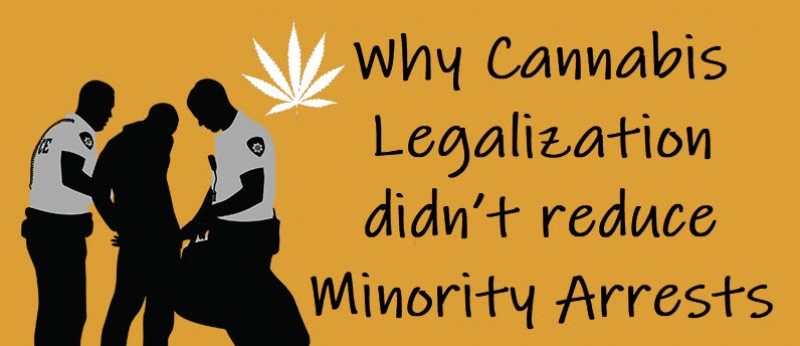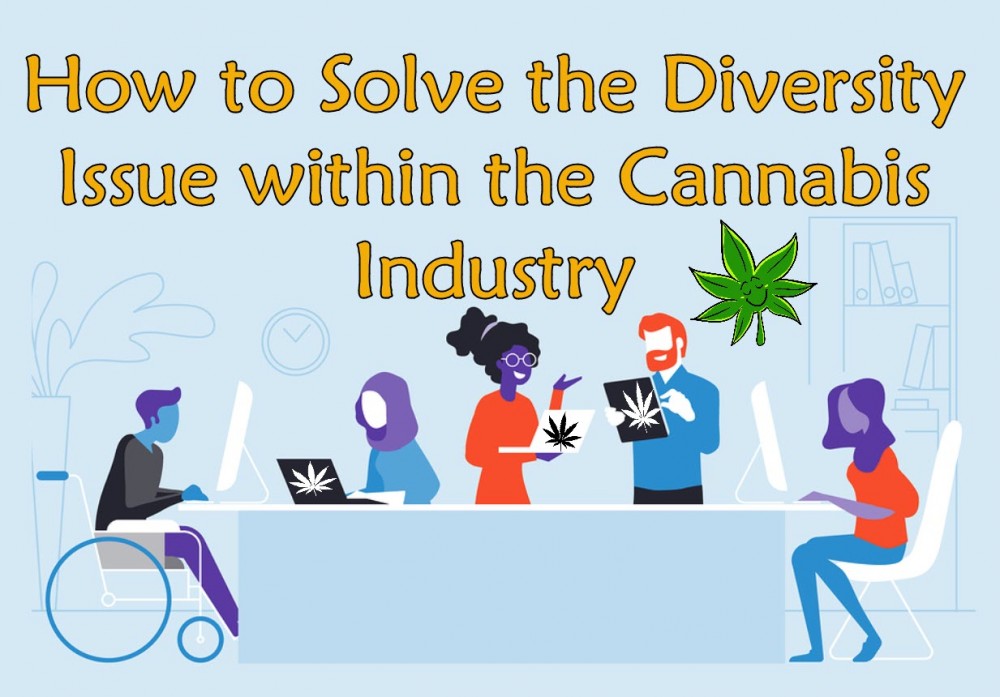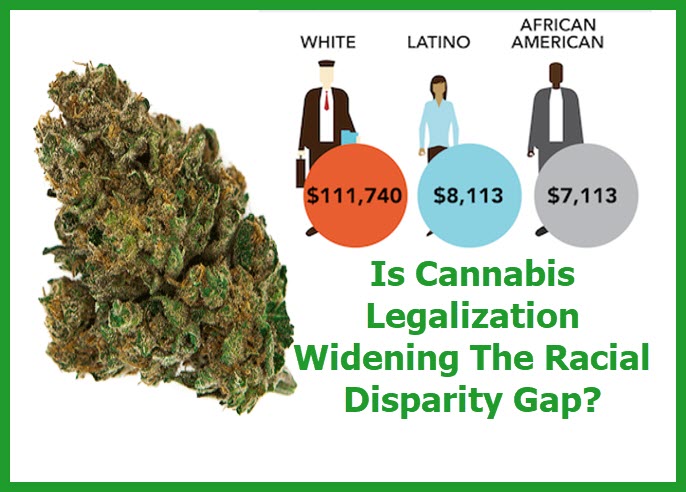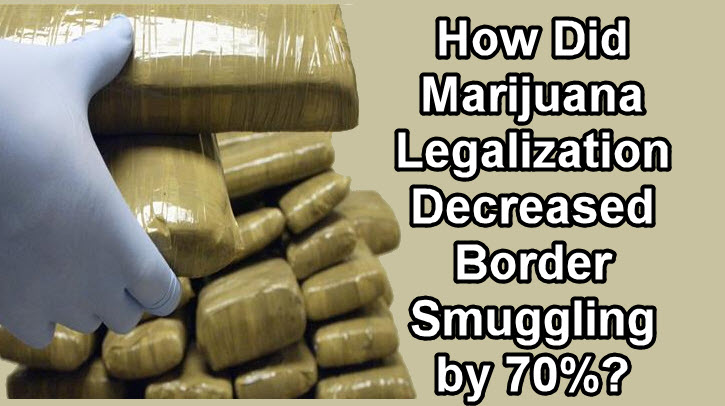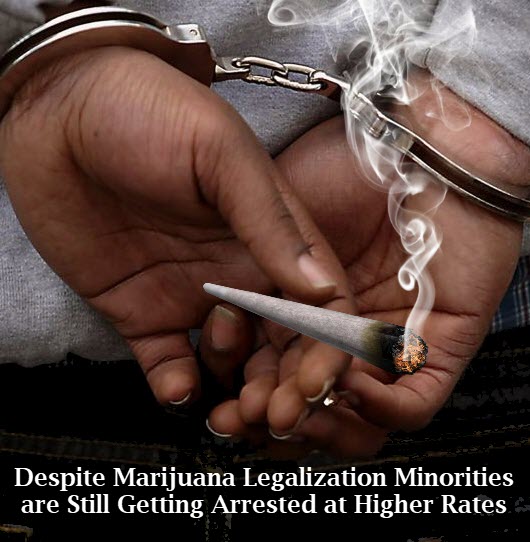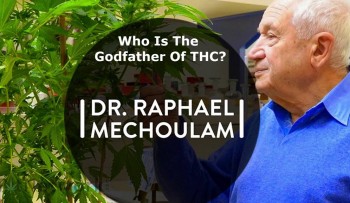Why Cannabis Legalization didn’t reduce Minority Arrests
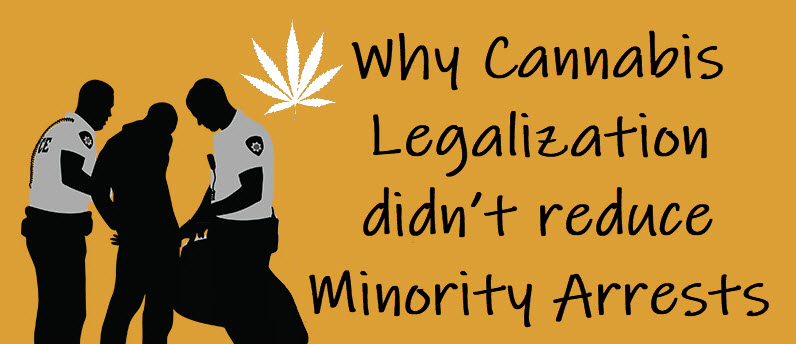
One of the big promises that cannabis activists believed would happen post-legalization was the reduction in minority arrests. Now, after cannabis has been legalized as a recreational substance in numerous states, we have seen a slight decrease in arrests (some might argue an increase), however the disparities between arrests rates have remained pretty much the same.
The big question we should be asking ourselves is, “Why didn’t cannabis reform reduce the arrest rates for minorities?”
To answer this question, we need to take a step back and look at the failed criminal justice system and the changing of policy.
Why are the cops still busting minorities?
If marijuana is legal, why are cops still going after minorities? Well, the problem here lies in the idea of “public consumption”. Within minority communities, the police presence is far greater than in the suburbs.
Wherever there is poverty, there is an increase in crime and as a result an increase in police activities. Additionally, there is a precedent on how cops deal with crime in these areas. I’m not arguing that the tactics used are correct, in fact, there is a major problem in the US police force when it comes to dealing tactfully with issues.
In the US, they are not trained to de-escalate a situation. This is why we often hear about people getting choked to death for selling loose cigarettes or being shot for some idiotic action.
In other words, cops in the US are very “gun friendly” and don’t hesitate to taze, tackle or beat down ‘potential criminals’. This is even truer when we look at minority communities.
Cannabis has been a factor that helped police achieve their “arrest goals” as it was the easiest to bust down potheads for consumption than finding a sex trafficking ring and the likes.
Thus, filling their quota, pot was a major resource (for them).
Side Note:
Arrest quotas should be abolished completely. There shouldn’t be a goal for how many people you arrest per month as opposed to having “crime prevention” as the major goal. But that’s another story.
The point here being that cops utilized the illegality of cannabis to fill quotas and coupled with the high police presence in minority communities created a disproportionate arrest rate within these communities.
This tactic has been used since the inception of the War on Drugs. It was one of the main reasons as to why the War on Drugs was enacted by Nixon in the 1970s.
Nixon, who was already very unpopular, needed a scapegoat to stop anti-war protests and target minorities. Thus, finding that cannabis was a common thread between hippies and minority communities, cannabis was added to the most restrictive category in the Controlled Substance Act, despite the suggestions from the Shafer Commission (a commission that was ordered by Nixon himself).
Thus, the issue is more systemic than relating to the legality or illegality of cannabis.
Why hasn’t it stopped now that cannabis is legal?
As mentioned, there is an entire criminal justice system in the work and to truly eradicate these racial discrepancies, it will be necessary to do a criminal justice reform.
You have to understand. The War on Drugs created a system that allowed law enforcement agencies to seize assets, violate human rights and ramp up their budget over the past five decades.
When Raegan and his ilk stepped into power, they ramped up the Drug War. They advocated for higher criminal penalties which leaded to more people being incarcerated for low level drug offences. The 3 Strikes laws also helped inflate the prison population.
This is why the United States has the most amount of prisoners in the world. Not something to be proud of.
Nonetheless, the fact of the matter is that entire industries were constructed on the premise that by incarcerating people, you can make money.
The current criminal justice model in the United States, especially when we’re looking at the War on Drugs, is a legal system to take non-violent people and create a workforce that works for pennies a day. Prisoners create goods and the government are the ones buying up those goods. They have a near-slave-like workforce doing their bidding.
If you truly want to remove the social injustices, the race disparities and the likes, you will need to address these systemic issues at the root.
We need to adjust the revenue streams of law enforcement, undo old RICO laws and reform the living hell out of the criminal justice system if we truly want a more equal society.
The legality of cannabis does make it harder for cops to bust people for smoking weed, however, we also need to have to expand the freedoms of cannabis consumers.
Currently, there are no places where people can go to for public consumption. Until there is equality in vices, there won’t be equality in society. Until we can go and have a joint in a bar, we will still have folks smoking in public, which is still illegal. And thus, the arrests won’t stop.
Of course, this is a very limited analysis about the problem, and we will definitely need to identify other issues revolving around the racism within the police force…but removing cannabis from the equation definitely does have a positive impact. Now we just need the cops to realize that.
OTHER STORIES YOU MAY ENJOY...
THE CANNABIS DIVERSITY ISSUE, CLICK HERE.
OR...
IS CANNBIS LEGALIZATION WIDENING THE RACIAL GAP? CLICK HERE.
OR..
HOW SMUGGLING CANNABIS IS DOWN 70%, CLICK HERE.

